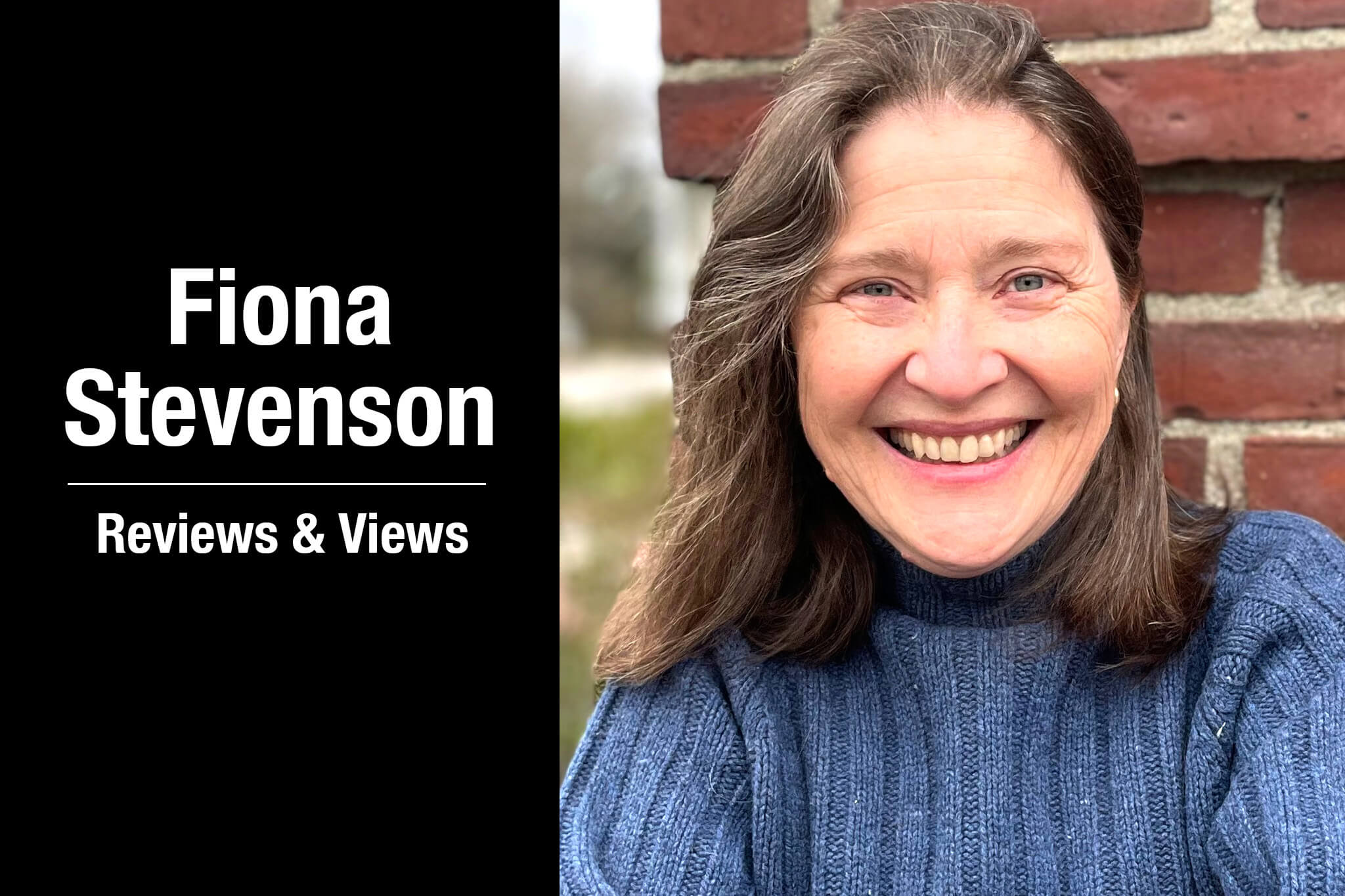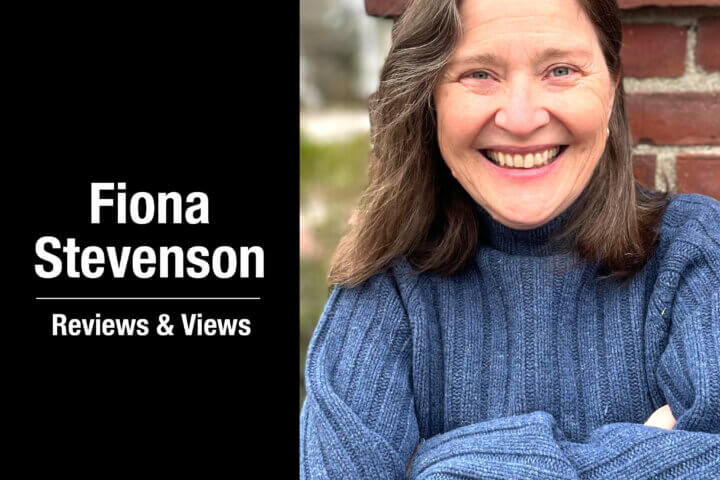By Fiona Stevenson — Columnist
April brings the promise of new beginnings as the green shoots and sparks of floral color appear even as we despair it’s not yet time to put away winter wear along with our doldrums. We’re eager to make a fresh start but aren’t sure how to make a difference not only personally, but to family, friends, and community.
If you’re not sure how to start, reading is always a sure way to discover purpose, to connect to the world, to discover new perspectives and information.
At the same time, it reduces stress and anxiety and improves cognitive function. Why not engage with the ideas and themes of a book and let them inspire you to take some action in your life?
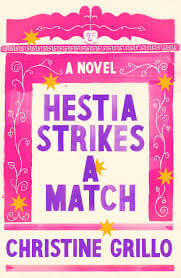
I’ve had “Hestia Strikes a Match” by Christine Grillo (FS&G) on my list for many months. This witty novel, set in a not-too-distant future of a post-Trumpy America, frames the struggles of Hestia, whose husband has left her to join a paramilitary group. If Hestia is to survive and thrive, she will need the help of Christine, her elderly friend who’s as sharp as a tack about everything from hoarding food to fighting local bullies. Funny, philosophical, and, like so much of our lives now, a bit surreal. Note to self: stock up on tinned food.
I like to garden even though I’m not very good at it — perhaps because I don’t really understand what works or why? Before I start my annual planting, I want to make an effort to understand the natural world, so I am tackling “The Light Eaters: How the Unseen World of Plant Intelligence Offers a New Understanding of Life on Earth” by Zoe Schlanger (Harper), a science writer at The Atlantic. This is a deep dive into how plants, stuck in the same place, evolve to flourish. Amazing facts — and metaphors for our own lives — abound in this book, a great pick for Earth Month. Note to self: go check out last year’s compost pile.
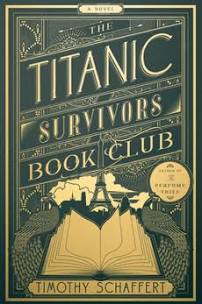
Can books lead us to community and a new start? In “The Titanic Survivors Book Club” by Timothy Schaffert (Penguin Random), a librarian who was meant to be on the Titanic is invited to join others who didn’t board the ship and survived. They form a book club, hoping that literature and fellowship will assuage their guilt and grief. Titanic-themed titles can be cliched, but this one works because the theme of building connections is beautifully and believably detailed. Note to self: attend book group at the library.
“Bear” by Julia Phillips (Hogarth) is a keenly anticipated spring read, with two sisters facing the hardships of contemporary working-class life, their relationship with each other, their mother – and a bear who keeps coming around. If anyone can pull this off, it’s Phillips, whose last novel, “Disappearing Earth,” is already an established classic and who manages to write well-plotted, entertaining, and profound fiction about finding strength in unexpected connections.
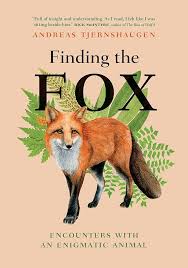
I don’t want to meet a bear, but I’d love to experience “Finding the Fox: Encounters With an Enigmatic Animal” by Andrea Tiernshaugen (Greyhaven.) You don’t have to get out into the wilderness to see this fascinating creature — wildlife is sharing our habitat already. Note to self: start bringing binoculars in the car.
“Who’s Afraid of Gender?” by Judith Butler (MacMillan): Well, I am — of hurting someone’s feelings by muddling understanding of their gender and identity. And I’ve always been a bit afraid of the intimidatingly academic Butler, too. But they have written a surprisingly accessible book on how we’ve reached the point of fear, hurt, and nastiness that seems to erupt when gender comes up in our confusion over identity and the rapidly shifting landscape of identity and sexual politics.
For those who feel there is too much information coming at us, Amanda Montell’s “The Age of Magical Overthinking: Notes on Modern Irrationality” (Atria/One Signal) tackles our tendency to want to arrive at the “correct” opinion on everything and insist that everyone agree with that. Note to self: Practice W.A.I.T. (Why Am I Talking) more.
Did we just abandon our children to the world’s most unsupervised playground when we let the Internet loose? Jonathan Haidt’s “The Anxious Generation: How the Great Rewiring of Childhood is Causing an Epidemic of Mental Illness” (Penguin Random) made me revisit just how vulnerable young minds are to unscrupulous corporate brain rewiring and marketing — and how many ills are rampaging on social media. Note to self: Put away screens more.
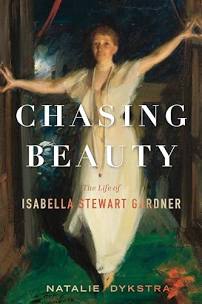
Need I point out Erik Larson has a new history book, “The Demon of Unrest: A Saga of Hubris, Heartbreak, and Heroism at the Dawn of the Civil War” (Crown)? Here, he tackles those terrible months when Lincoln was new in his presidency of a country teetering on the brink of catastrophe. And a little closer to Boston, “Chasing Beauty: The Life of Isabella Stewart Gardner” by Natalie Dykstra (Mariner Books) is a look at the society matron and founder of the beloved Gardner Museum and how she built her art collection. It will inspire you to visit the Gardner, and you can borrow a Museum Pass from the Concord Free Public Library before you go. Note to self: Go to more stuff and read the display cards.
Spring means fresh produce and new recipes to freshen up my tired repertoire. “Cooking in Real Life: Delicious & Doable Recipes for Every Day” by Lidey Heuck (Simon Element) promises some help. I can always count on CFPL’s postings on “From Catalog to Kitchen” on Instagram, with healthy recipes chosen from cookbooks that library staff make, photograph, and explain. It never fails to inspire in an easy area to improve — eating. Between that and getting out to attend Town Meeting to exercise our democratic right to contribute to changes big and small, that should be a promising start to spring. Note to self: Bring healthy snacks to share at Town Meeting.


